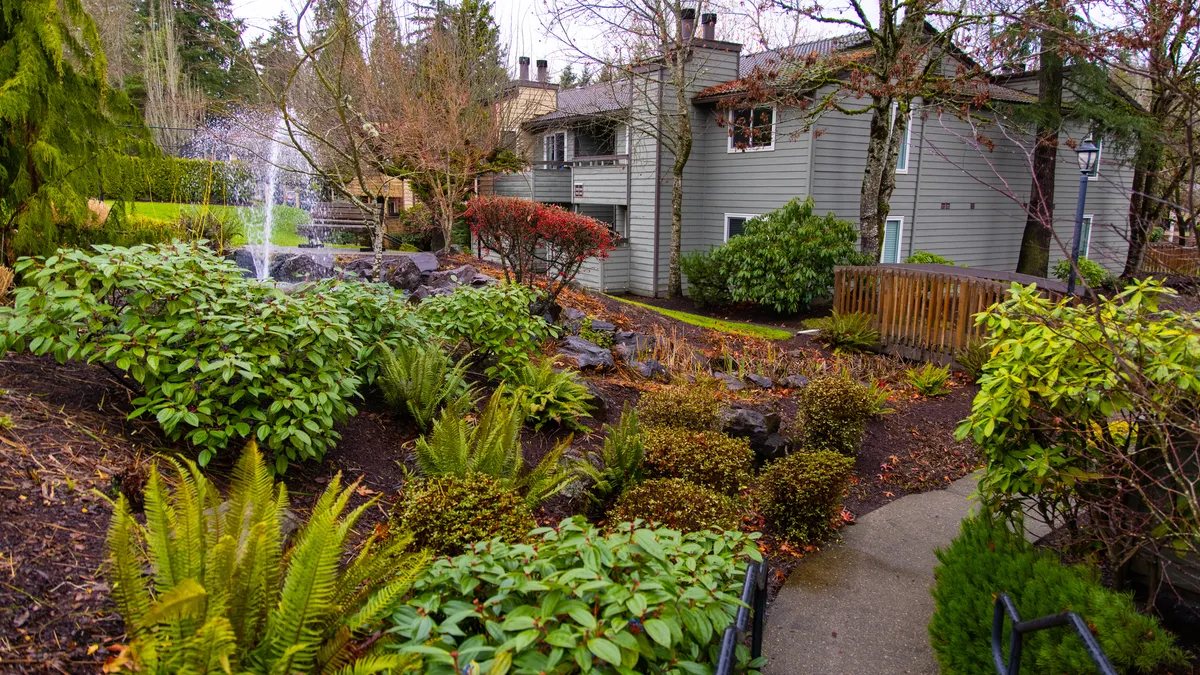Dive Brief:
- Amazon has launched a more-than $2 billion Housing Equity Fund to preserve and establish over 20,000 affordable housing units near its three hub locations: Washington's Puget Sound region; Arlington, VA; and Nashville, TN.
- The company shared plans for its first two investments, which include a $381.9 million investment in below-market grants and loans to build and preserve over 1,300 affordable homes in Arlington, and a $185.5 million investment in below-market loans and grants to the King County, WA Housing Authority to maintain up to 1,000 affordable homes in Bellevue, WA.
- Five thousand employees are expected to move to the three hub locations in the coming years. Amazon said the fund is designed to be part of the solution to the affordable housing crisis, by offering grants and below-market loans to public agencies, housing partners and minority-led groups, according to the announcement.
Dive Insight:
Tech giants like Amazon have made a number of affordable housing investments in recent years, a problem many experts have said such companies helped create.
Microsoft, for instance, has committed $750 million to support affordable housing, with the recent addition of a $250 million investment to help fund about 3,000 affordable housing units in the Seattle area. Apple recently made a $2.5 billion commitment to create more affordable housing in California; Google pledged to invest $1 billion to add 20,000 affordable homes in the Bay Area within the next decade; and Facebook has also pledged to invest $1 billion for a similar effort.
"I am heartened to see the companies that have experienced such rapid growth in high-cost areas taking important steps to also contribute to both the production and preservation of housing in their areas," said Urban Institute President Sarah Rosen Wartell of Amazon's announcement. "But equally important, [they are] lending their voice as major employers who can command the attention of elected leaders that investment in affordable housing is a critical, necessary step for a region's balanced, healthy economy."
Amazon's latest investment will target households in its three hub locations that have an income between 30% to 80% of the local area median income. In the Seattle-Tacoma-Bellevue-area, that includes four-person households with an income of less than $95,250 per year, and in the Washington, DC metro-area, that includes four-person households that make less than $79,600 a year.
The fund will include a $161.5 million below-market loan and $24 million in grants in the state of Washington to maintain 1,000 affordable apartment homes.
"I am very pleased with Amazon’s decision to invest $185 million into affordable housing in the Puget Sound region. The lack of and increasing need for affordable housing availability make up one of the most urgent challenges facing our region, and COVID-19 has heightened and made its importance even more obvious," King County Councilmember Jeanne Kohl-Welles said in an email. "This investment is a relative drop in the bucket, but Amazon’s loans and grants will provide much needed capital for expanding our supply of affordable housing now, when our communities need it the most."
The fund's first investment in Virginia will include a $339.9 million below-market loan and $42 million worth of grants for the nonprofit Washington Housing Conservancy (WHC). Access to the lower-cost financing can help WHC preserve affordability, as Arlington County has lost 14,400 privately-owned affordable-priced homes since 2000.
The area's median home value has also increased about 20% despite median incomes increasing only 7%.
The company's investments in the Washington, DC-area will have a major impact on a great scale, according to Wartell.
"I think they are being very intentionally part of an ecosystem of civic leadership in this region designed to move toward a balanced plan," she said. "It's an important contributor. It's obviously not itself sufficient, but it's a necessary contribution to the region's needs."
The fund will also provide $125 million in cash grants to nonprofits, minority-led organizations and businesses to "build a more inclusive solution to the affordable housing crisis," according to the company press release. It will also provide grants to groups typically left out of housing issues, including transit agencies and school districts.












